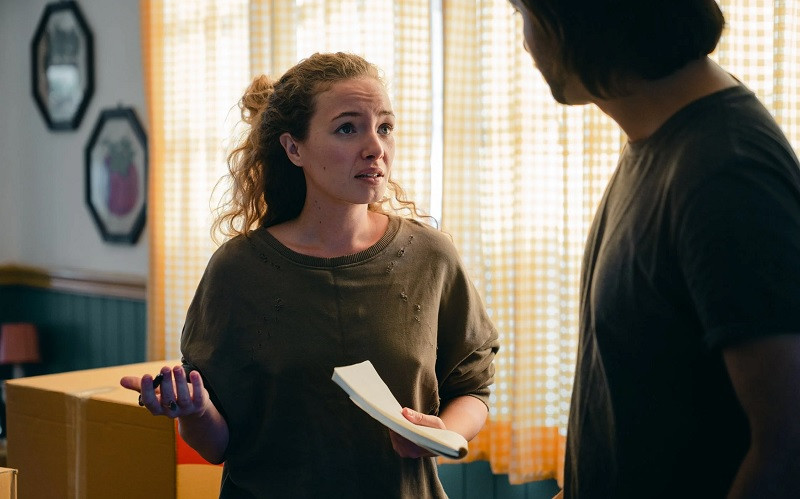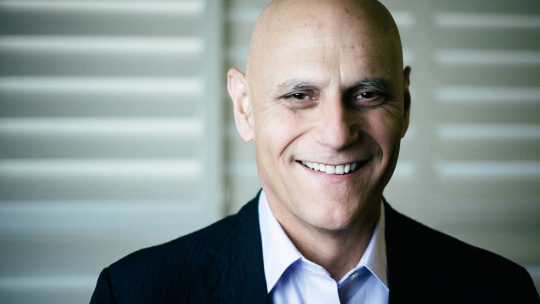
It is no secret that human beings have a great predisposition to establish collaborative relationships with the rest of the members of our species; This is the only way to explain why we are capable of creating societies that house millions of people living together in relative harmony, something unprecedented if we look at the way of life of other mammals.
In theory, this tendency to maintain friendly or even loving ties with others is a way in which we provide ourselves with a social support network, as well as the ability to be happy by participating in the lives of other people, which helps us to promote our personal development and discover our own qualities. I insist: in theory.
Because in practice, there are not rare cases in which even the most based personal relationships based on years of constant contact become a factory of anxiety and stress, something that wears down our emotional well-being but, at the same time, we do not feel capable of letting go or trying to manage so that it stops negatively affecting our quality of life. Here We will see what are the characteristics of these forms of anxious and dysfunctional attachment with which you can feel identified and some tips to manage them.
The main variants of anxious attachment
Below we will see what are the main and most frequent psychological factors that can lead people to establish bonds that generate anxiety when interacting with their friends, family, partners, etc.
1. Relationships based on the desire to transform the other
This type of anxiety-generating relationship arises when you experience the need to have a deep connection with the other person, but you never feel that the other person connects with you on an emotional or intellectual level: they have a very different scale of values than yours. , his interests are so different that he never asks the right questions to understand how you feel, he doesn’t give you the emotional support you expected when facing your problems, etc.
In cases like this, there is a significant difference between the expectations you have placed in that relationship, and what the relationship really provides you, and furthermore, It is probably difficult for you to put into words why that bond with the other person does not satisfy you which can lead you to blame her or yourself (although in reality no one should be “to blame” for anything).

These types of situations lead people to become obsessed with changing the person with whom they have established a relationship, trying to “be at their level” The lack of results in these unilateral attempts causes anxiety to arise both because of frustration and because of the climate of negativity that takes over that relationship (given that the other person does not fully understand what is happening and feels unfairly criticized).
2. Relationships based on fear of rejection
These types of anxiety-generating relationships are not maintained because of the happiness they bring us, but because of the fear that they will end. They occur when you are constantly worried that what you do or say your partner, family member or friend will not like and you fear that the relationship could break up because of you.
In addition to giving rise to emotional dependence, these types of dynamics They can encourage the other person, without realizing it, to adopt an absolute leadership role in all aspects of the relationship, and gets used to not having our point of view or opinion, which further feeds the vicious circle of fear of rejection.
3. Relationships based on evidence of love or affection
These types of relationships have some characteristics in common with those that have to do with emotional dependence, but in this case, a passive-aggressive attitude arises that leads to constantly asking for proof that the loving or emotional bond is still valid, and the lack Non-ordinary behavior that demonstrates it is considered a sign that something is wrong. That is to say, You get into a “he doesn’t love me until proven otherwise” mentality
This behavioral dynamic is associated with the need to constantly ask if they still love you or see you as someone special. Furthermore, in many cases, even if the answer is positive, suspicions arise and those who test the other person do not end up believing in the sincerity of their answers, even if they try to console them and reassure them that the relationship is going well.
4. Relationships based on jealousy and the desire to control the other
Unfortunately, these types of relationships are very common even today, and in many cases they are so severe that they constitute a form of psychological abuse (when the jealous or controlling person is not aware that what is happening is their problem, and not a problem on the other person’s part).
When this happens, possessive, jealous behavior occurs, which leads to trying to make decisions for the other person, as if they were a possession and not a human being This need for control could be fueled by the fear of abandonment, and in reality ends up alienating the person, generating the effect of a self-fulfilling prophecy.
To do?
These are some tips you should keep in mind if you notice that you are participating in anxiety-inducing relationships.
1. Don’t assume that someone is to blame for what happens
On many occasions, relationships become unsatisfactory or emotionally damaging through no one’s fault; This is what happens when there is an incompatibility between very different forms of personality, for example. That’s why, Don’t assume that you have to adopt a hostile attitude towards the other person
2. Be clear about the limits to respect
You must know how to mark the limits that the other person should not exceed when dealing with you, and also what they are. the red line that you should not cross to respect the rights and dignity of the other person. Only in this way will you be able to manage the situation properly, either to improve the relationship or to end it on good terms.
- You may be interested: “Assertiveness: 5 basic habits to improve communication”
3. Learn to identify abuse in all its forms
You must keep in mind that abuse is not only physical; It can be psychological and very subtle, and it is important that if it occurs you identify it quickly so as not to allow yourself to fall victim to an emotional manipulation strategy from that dynamic. And if there is abuse, it is very important not to try to improve the relationship: The absolute priority should be to cut contact and move to safety
4. Learn to establish a fluid dialogue based on assertiveness and active listening
The balance between active listening and assertiveness will prepare you to be able to express yourself honestly and at the same time do everything possible so that the other person is also capable of doing so. Taboo topics should not be left undiscussed if they are relevant to improve the quality of the relationship.
5. If the problem arises from past insults, it is necessary to repair the damage
If an unfair situation has occurred, or more than one, it is essential that the damage caused be recognized, that an apology be made, and that an initiative be given to try to repair the damage caused to the extent possible. This way you will be more likely to start from scratch, breaking the vicious cycle of passive-aggressive attitude questioning the other’s intentions, etc.
- You may be interested: “What is the point of asking for forgiveness? Its 6 benefits”
Are you interested in having professional psychological assistance?
If you want to start an individualized psychological therapy process, or are interested in going to family or couples therapy, contact me.
My name is Leticia Martínez Val and I am a health psychologist specialized in caring for the adult and adolescent population. I offer face-to-face sessions in my office in Zaragoza and also online by video call.








